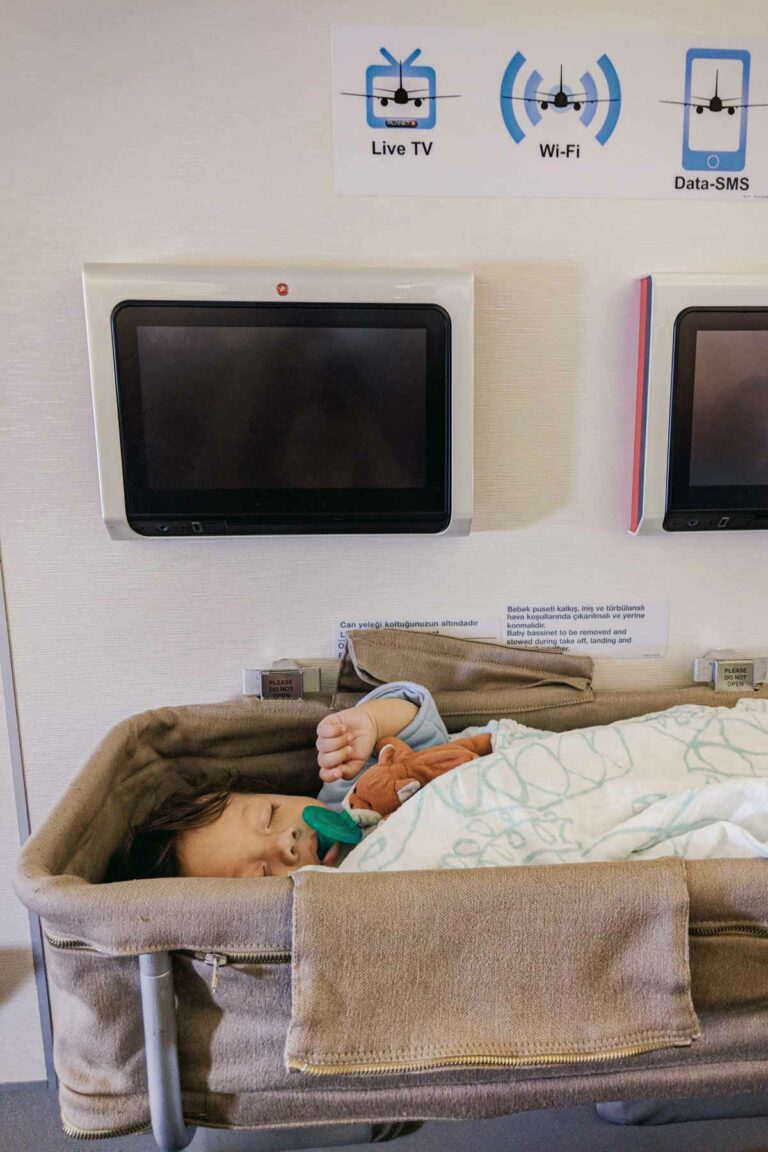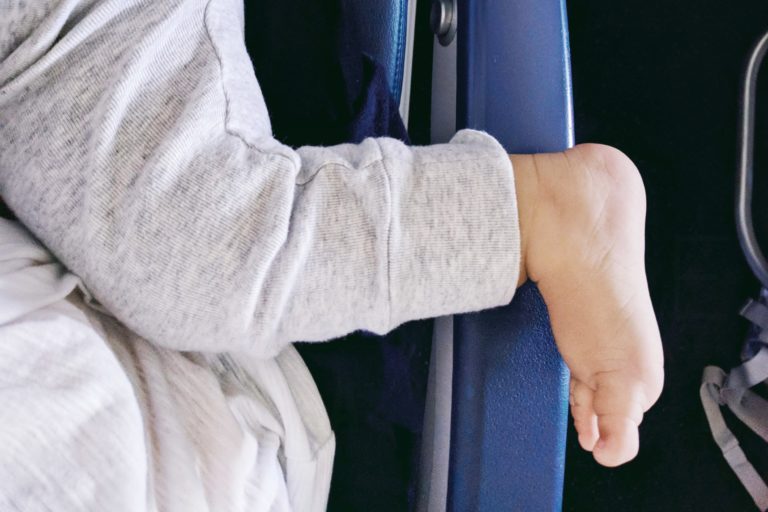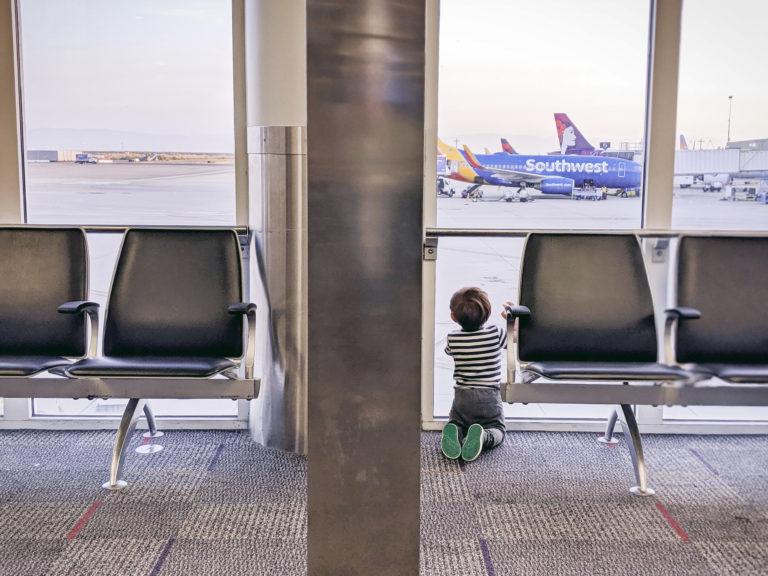How to help your baby adjust to a new time zone
Are you planning a trip around the world but worried about how your baby will adjust to a new time zone? Changing time zones with your baby can seem intimidating. Even the one-hour daylight savings change can be a struggle, nevermind jumping ahead (or behind) 3, 6 or even 12-hours. But, it’s doable. We’re here to help you help your baby adjust to a new time zone.

Adjusting to a new time zone on the way to a new destination
It always seems easier to adjust to a new time zone when you’re going someplace new. I think this is mostly due to the excitement, the adrenaline keeps you going. However, that probably isn’t applicable to a baby. I think the plane ride helps you adjust as well. Even if everyone manages to sleep on the plane, it’s not going to be as comfortable or as restful as regular sleep.
Adjusting to a new time zone when you return home
Getting back into the right time zone at home is not as much fun as on the way there, unfortunately. It can be tough on the babies, but also tough on the parents too.

Tips to help your baby adjust to a new time zone
- Throw yourselves into the new time zone right away. If you arrive at your new destination during their morning or daytime, it might be hard to power through the day, but it’s best to do this in order to adjust as quickly as possible. By nighttime, everyone is extra ready for a good night of sleep.
- Go out as much as possible in daylight because it naturally helps regulate the body.
- Try to encourage plenty of play and movement during the daytime.
- Let your baby nap as needed, but watch the clock or set an alarm to avoid oversleeping. You don’t want the baby to think it’s nighttime.
- It’s even better if you only do naps while out on the go (using a stroller or baby carrier) the first day. The natural light and noise should help signal to your baby that it’s daytime still. The contrast of a darker and quieter setting come nighttime will help them get on the new schedule.
- Maintain your home nighttime sleep routine as much as possible. While the timing and location will be different, the motions (e.g., bath, book, song) will signal to your baby that it’s time to sleep.
- Use a sound machine at night to minimize noise and distractions and ensure everyone has the best chance at sleeping through the night.
- If your baby wakes up in the middle of the night and you cannot get them back to sleep, let them play but only allow quiet activities, quiet voices and keep the lights low. Try to get them back to sleep after a bit if it’s still night.






